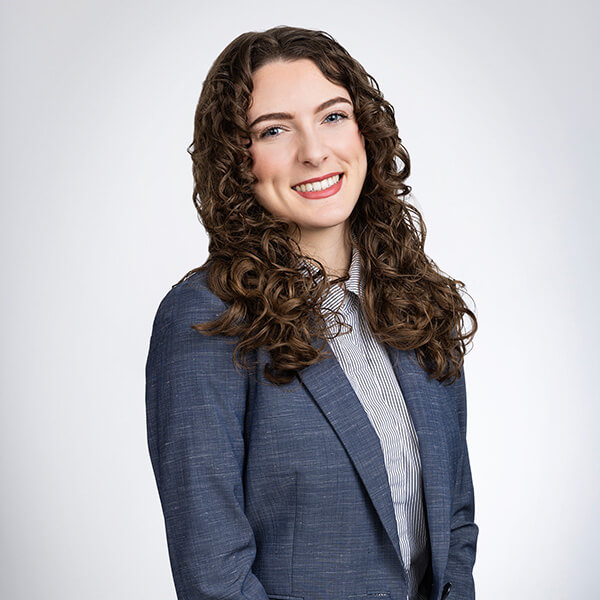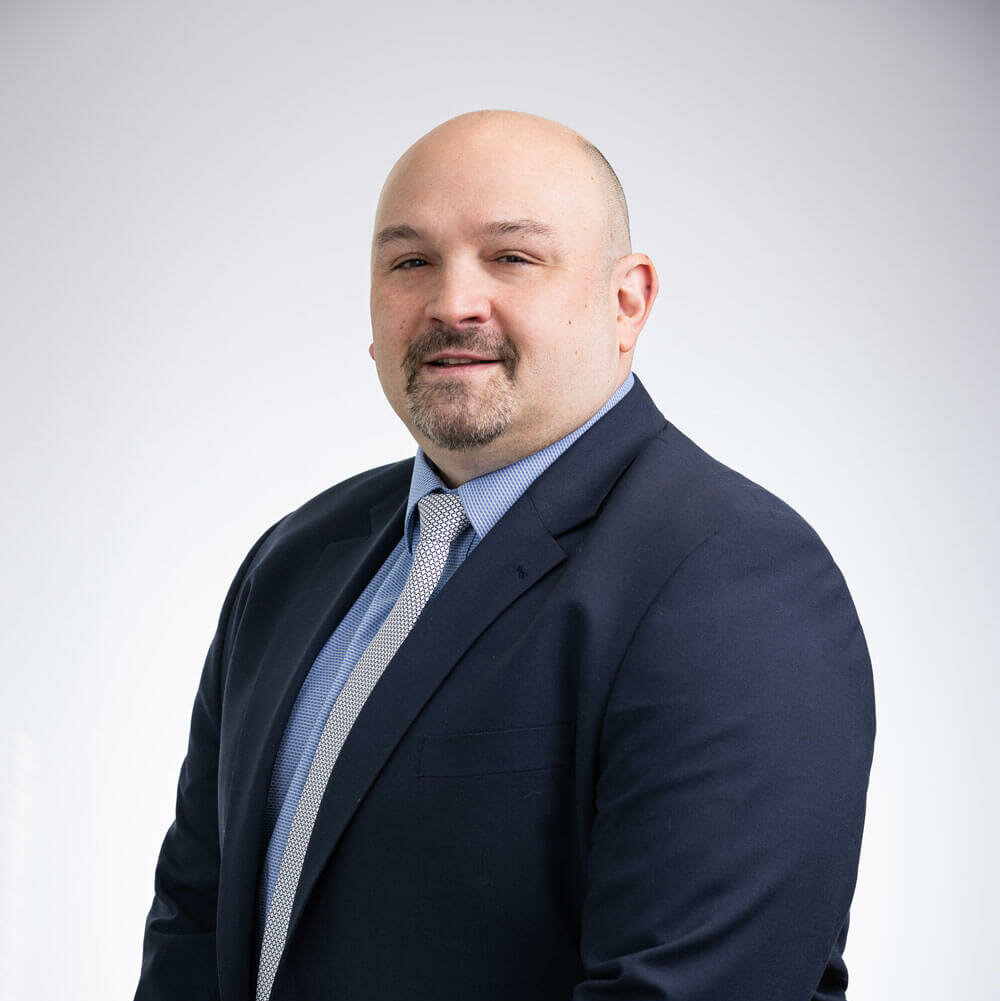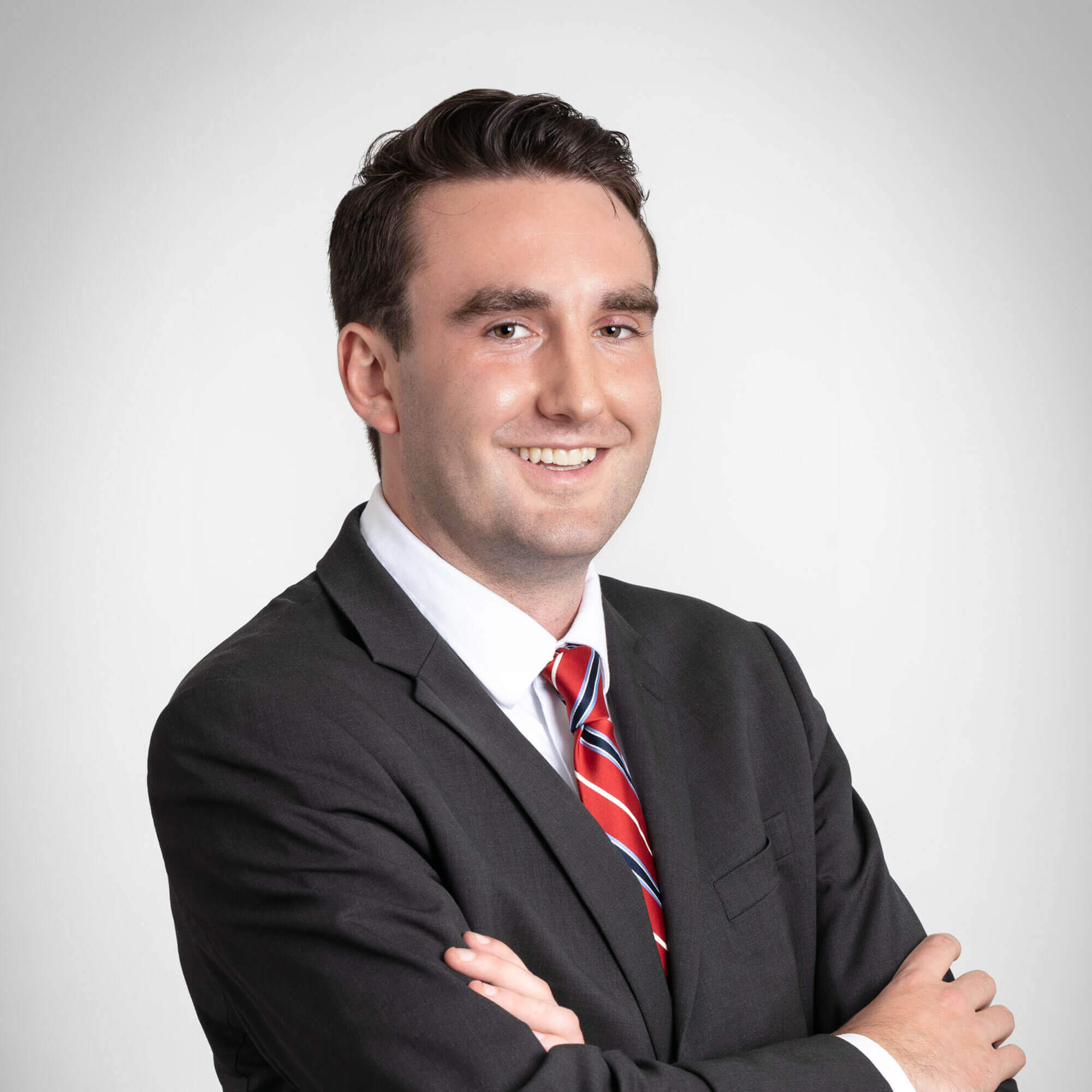Sarah Gianotti
Sarah Gianotti supports Lewis-Burke by utilizing her background in environmental science and grants consulting to assist clients interested in environmental and energy issue areas. Her experience in client outreach, grant research, and government affairs has prepared her for her role, which includes tracking legislation, agency developments, and funding opportunities, as well as providing insight into a variety of issues. The agencies Sarah primarily covers are the Department of Energy (DOE), Environmental Protection Agency (EPA), National Science Foundation (NSF), National Oceanic and Atmospheric Administration (NOAA), and U.S. Geological Survey (USGS).
History: Sarah’s passion and expertise is evident through her experience in consulting, government, and sustainability. Before joining Lewis-Burke, Sarah assisted at a grant writing company where she was familiarized with DOE, NSF, and education funding opportunities and projects. She also gained exposure to the lobbying world through interning at Alpine Group, a bi-partisan lobbying firm based in Washington, D.C.. During college, she served in the Texas Senate as a Messenger during the Texas 87th Legislative Session and the Summer Interim. Additionally, she led a student organization under her University’s Office of Sustainability called Green Greeks; there, she organized and executed environmental focused service and social events for fifty student members.
Issue Areas: Environment, Energy, Weather and Climate, Infrastructure, Clean Energy Resilience, and Transportation.
Vital Statistics: Sarah was born, raised, and schooled in Austin, Texas. She graduated in 2023 from the University of Texas at Austin with a Bachelor of Science in Environmental Science and a focus in Geography. Outside of work, Sarah enjoys practicing yoga, going to farmer’s markets, and taking hikes through Rock Creek Park with her husband, Austin, and her little dog, Kiki.
Leslie Albright
Ms. Leslie Albright is a Senior Policy Advisor to Lewis-Burke and will serve Lewis-Burke clients with interests in science, space, and national security interests. Ms. Albright has nearly three decades of budget and policy experience with both the executive and legislative branches of the Federal government.
Ms. Albright began her career at the Department of Commerce, in Washington, D.C., working nearly 10 years for the Department’s Chief Financial Officer to review budget requirements and make policy recommendations for the Economic Development Agency and National Oceanic and Atmospheric Administration programs and for all Emergency Disaster declarations at the Department of Commerce. In 2001, Ms. Albright was hired as a Professional Staff Member for the U.S. House of Representatives, House Appropriations Committee. Among the departments and agencies Albright oversaw were the Department of Justice, the Department of Commerce, the National Oceanic and Atmospheric Administration, the National Science Foundation, the National Aeronautics and Space Administration, the National Space Council, the Office of Science and Technology Policy, and the Department of Defense. As a Professional Staff Member, Albright was responsible for reviewing Federal agency budgets, drafting legislative and report language and making funding recommendations to Members of Congress, including the Chair or Ranking Member of the House Appropriations Committee and relevant Appropriations Subcommittee “Cardinals.” Albright regularly convened meetings with relevant agency personnel, academia, private sector interests, the Government Accountability Office and the National Academies to inform funding and policy recommendations. Her last position was Minority Clerk for the Defense Subcommittee of the House Appropriations Committee.
Issue Expertise: Ground and space-based science infrastructure; human and uncrewed space exploration; basic research; tech development; national security, Federal law enforcement.
Additional Experience: Prior to joining Lewis-Burke, Albright worked with a firm advocating additional funding for national research facilities, academia, non-profits and FFRDCs.
Vital Statistics: Ms. Albright received a B.A. from SUNY Plattsburgh and an M.S. from Boston University. Ms. Albright retired from Federal service in 2019 and now resides with her family in the Hudson River Valley, New York. There, she serves on a local land conservation trust, serves as a merit badge counselor for a local Boy Scout Troop, and spends free time gardening, kayaking on the Hudson River, and hiking in the Catskill and Adirondack Mountains.
Susannah V. Howieson, JD, MEM
Susannah V. Howieson, JD, MEM is a Federal science and technology policy expert who focuses on basic and applied energy research and development and national security science and technology. In addition, her years of experience working with the Executive Office of the President, Federal research agencies, and Congress on critical science policy issues have provided her with broad expertise and networks that enable her to support clients across energy, defense, physical sciences, and economic development issues.
Most recently, Susannah led strategic planning, interagency coordination, and infrastructure planning for the Department of Energy’s Office of Science where she spearheaded efforts on laboratory modernization, place-based innovation, and increased research program integration. Susannah managed the development of an umbrella Memorandum of Understanding between the Office of Science and NSF and created a vision for the future of the National Laboratory complex (Laboratories of the Future) through far-reaching stakeholder engagement. She also completed a rotation in NNSA’s Office of Policy and Strategic Planning, further deepening her connections to and understanding of the nuclear community. Susannah is a master communicator, facilitator, and consensus builder, and is especially skillful in distilling complex policy topics down to key digestible messages.
Susannah has authored dozens of reports on topics such as technology transfer, facilities and infrastructure planning and prioritization, and government laboratory-university partnerships. Her efforts have been integral to the development of critical national policies, including the Decadal Vision for Commercial Fusion Energy, the National Security S&T Strategy, and the Presidential Memorandum on Space Nuclear Power and Propulsion, and she has served on multiple interagency committees, such as Lab-to-Market and the subcommittee on Critical and Emerging Technologies List.
Issue Expertise: Basic and applied energy research and development and DOE; Nuclear production, policy, and security and NNSA; physical sciences; Federal research management, national labs and FFRDCs, interagency coordination, and infrastructure; Technology transfer and regional economic development; emerging technology and the national security S&T enterprise.
Additional Experience: Before joining DOE, Susannah served in the office of Congressman Bill Foster (IL-11) as a Nuclear Security Working Group fellow. For close to a decade prior, Susannah conducted science and technology policy analysis for the IDA Science and Technology Policy Institute (STPI), a federally funded research and development center that supports the White House Office of Science and Technology Policy (OSTP) and other Federal agencies. At STPI, Susannah focused on assessments of research organizations and national security. She also has significant experience in strategic planning and policy development, primarily through her work for the National Security and International Affairs Division of OSTP. Susannah co-led the research team for the Commission to Review the Effectiveness of the National Energy Laboratories (CRENEL) for DOE. Before STPI, she worked as an attorney at Sidley Austin, LLP in New York, NY, and for the Office of Climate Change Policy and Technology at DOE.
Vital Statistics: Susannah holds a BA from Rice University with a double major in Biology and Ancient Mediterranean Civilizations, a JD cum laude from Boston University, and a Masters of Environmental Management (MEM) in Environmental Economics and Policy from Duke University. She lives in Alexandria with her husband, three children, and a dog, cat, and fish. In her free time, she loves to travel, especially to historical sites and nature preserves.
Bruno Freitas
Bruno Freitas is a passionate and respected former federal government professional with over a quarter century of combined experience working in the United States Senate and the House of Representatives. He has cultivated long standing relationships with Members of Congress, congressional staff, and federal agency leadership. Bruno leverages his experience to provide clients with detailed policy advice and tailored comprehensive advocacy strategies to achieve desired results.
Issue Expertise: appropriations, budget, economic development, energy, environment, financial services, infrastructure, and innovation policy
Additional Experience: Prior to joining Lewis-Burke, Bruno worked on Capitol Hill for 28 years, most recently serving as Deputy Chief of Staff for Senator Elizabeth Warren. In that role for Senator Warren, he led and managed several policy teams and spearheaded the Senator’s state and local priorities. During his tenure he covered a wide array of federal policy areas including energy, environment, climate change, infrastructure, transportation, appropriations, budget, tax, economy, commerce, small business, defense, and financial services. Bruno was part of the Senator’s team that secured accomplishments in several critical legislative acts such as the American Rescue Plan, the Infrastructure Investment and Jobs Act, and the Inflation Reduction Act. He also managed numerous high profile federal projects and on behalf of the Senator obtained billions of dollars for critical infrastructure and economic development.
Vital Statistics: Bruno grew up in Massachusetts and attended Bridgewater State University, where he earned a Bachelor of Science Degree in Political Science. In his spare time, he enjoys traveling, all things Boston sports, and cooking Sunday dinner for his wife and two daughters.
Sierra Cato, J.D.
Sierra Cato is a Principal in the Energy Policy Practice at Lewis-Burke Associates LLC. As a trusted advisor, Sierra helps clients advance legislative priorities in Congress, protect their interests, secure federal funding, navigate challenges in the political landscape, and raise their profile in Washington. Prior to joining Lewis-Burke Associates LLC, Sierra served in leadership appointments at the U.S. Department of Energy, including Acting Staff Secretary to Secretary of Energy Dan Brouillette where she led cross-agency coordination and preparation of the Secretary’s briefing materials for both domestic and international engagements. Sierra also served as a Senior Advisor in the Office of the Executive Secretariat where she oversaw the Department’s response to high level communications and policy actions from the White House related to energy policy and national security and spearheaded legislative reform efforts across DOE. Lastly, in her capacity as Senior Advisor on Minority Education, Sierra was the DOE liaison for White House initiatives advancing STEM equity and educational excellence for all minority-serving institutions and HBCUs.
Sierra received a Secretary’s Appreciation Award from Secretary of Energy Rick Perry for exceeding expectations in the strategy and creation of the Department of Energy Artificial Intelligence and Technology Office in September 2019.
Issue Expertise: Energy Sciences, Physical Sciences, Applied Energy, Energy Efficiency, Renewable Energy, Fossil Energy, Nuclear Security and Nonproliferation, Nuclear Energy, DOE National Laboratories, Transportation, Appropriations, Artificial Intelligence, Technology Transitions, Grid Resilience and Modernization, Cybersecurity, Workforce Development and STEM
Additional Experience: During her career, Sierra gained sound knowledge of the inner workings of Congress while serving in various positions in the United States House of Representatives and the United States Senate, including serving as a law clerk for Senator Thom Tillis (R-NC) and the Senate Committee on Commerce, Science, and Transportation, as well as a Legislative Staff Assistant and Intern for former Senator David Vitter and Majority Leader Steve Scalise, respectively.
During her time in the Senate, Sierra was Co-Chair of the Community Service Committee for the Senate Black Legislative Staff Caucus. In addition to a strong appreciation for service, Sierra values the importance of building strong relationships and working in a bipartisan manner.
Vital Statistics: Sierra earned her Bachelor of Science in Applied Sociology at North Carolina State University. She received her Juris Doctor from Loyola University New Orleans College of Law. Sierra was born and raised in Whiteville, North Carolina. In her spare time, she enjoys hiking, traveling, and spending time outdoors.
Griffin Reinecke
Griffin is a passionate advocate for science and technology policy. An expert in space, energy, and transportation issues, he leverages his experience working on Capitol Hill and relationships with congressional staff to provide Lewis-Burke clients with insight on potential congressional action and upcoming federal funding opportunities.
Issue areas: Civil space research and policy, fundamental and applied energy research and development, environmental research, transportation and infrastructure, and aeronautics.
Additional Experience: Prior to joining Lewis-Burke Associates, Griffin worked on the House Science, Space, and Technology Committee, where he served on the full committee and more recently on Space and Aeronautics Subcommittee. During his time on the Committee, he developed an in-depth knowledge of space and science policy issues while building relationships with key stakeholders at relevant agencies, in academia, and industry. Griffin also worked as an intern in the office of Ron Wyden.
Vital Statistics: Griffin was born and raised in Bend, Oregon and earned his bachelor’s degree in political science and sustainability from the University of Michigan. When not supporting Michigan athletics, Griffin spends his free time outdoors skiing, hiking, or playing golf.
Finding New Sources of Funding for a University Project
Lewis-Burke worked closely with a major university cyber infrastructure project that was coming to the end of its initial 10-year funding.
Lewis-Burke developed a strategy to raise the profile of the project across its home agency, as well as other federal funding agencies and the research community at large. Following initial implementation of this strategy, the project has been praised throughout a number of discipline areas at its home funding agency and has become a model of best practice in its field.
Following the implementation of the Lewis-Burke advocacy strategy, the project was invited to submit a non-competitive renewal proposal. Building on this initial success, Lewis-Burke has worked with the university to raise the profile of the project to solidify core funding and to engage on new funding opportunities at other agencies to ensure sustainability of the project.
Establishing Support for Unmanned Aircraft Systems Flight Test Centers
Working on behalf of a university client, Lewis-Burke successfully crafted and executed a lobbying strategy to integrate an established Unmanned Aircraft System (UAS) Flight Test Center (FTC) into the Federal Aviation Administration’s (FAA) Flight Test Site program through the FAA Reauthorization Act extension.
Leveraging understanding of the FAA reauthorization process and extensive knowledge of the university’s capabilities, Lewis-Burke drafted an amendment to the FAA Reauthorization Act, and developed a proposal for congressional delegation staff to use when discussing the request with Senate Commerce, Science and Transportation Committee staff.
The legislative proposal demonstrated the importance of the UAS FTC in the FAA Flight Test Site program, including its historical impact on and relationship with the FAA and UAS research, development, test and evaluation. Lewis-Burke complemented the lobbying strategy with outreach to the FAA to ensure effective implementation of the amendment. While the comprehensive reauthorization of the FAA was delayed, Lewis-Burke leveraged existing support for adoption of the UAS FTC amendment into the FAA authorization extension bill. The FAA extension, including the UAS FTC amendment, was signed into law in July 2016, integrating the university’s UAS FTC into the FAA Flight Test Site program.





